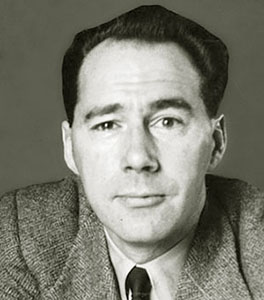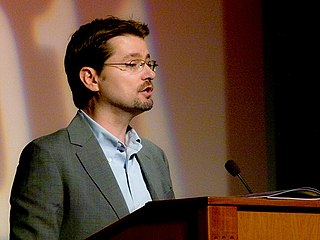A Quote by Hilary Kornblith
Ethologists thus have an interest in looking at these capacities for the reliable acquisition of belief, and it is not surprising that they have a name for the true beliefs which are the typical product of these reliable capacities. They call them items of knowledge. So I argue that talk of knowledge may thereby be seen to be embedded within a successful empirical theory.
Related Quotes
I argue is that philosophers have had a tendency to present a kind of mystical view of the powers of reflection. Unreflective belief acquisition is seen in mechanistic terms, but when philosophers talk about reflection, it is as if reflective processes are not bound by the kinds of limitations which inevitably arise from being embedded within the same causal structure which governs unreflective belief acquisition.
I am convinced that it is impossible to expound the methods of induction in a sound manner, without resting them upon the theory of probability. Perfect knowledge alone can give certainty, and in nature perfect knowledge would be infinite knowledge, which is clearly beyond our capacities. We have, therefore, to content ourselves with partial knowledge - knowledge mingled with ignorance, producing doubt.
Talk of belief in these animals is not some kind of anthropomorphism. We simply cannot explain the kinds of problem solving and behavioral sophistication some species exhibit without supposing that they have genuine beliefs. But once these ethologists finish making the case for animal belief, they quickly move to talk of animal knowledge as well. What I argue is that this is not a mere façon de parler.
Ever since Sir Isaac Newton's times, scientists have worked in the same sort of way: They show a great respect for experiment and observation, They don't cherry pick data, They take a skeptical approach to what they do. And then scientists work together to get a consensus as to what should be believed And that generates very reliable knowledge and that reliable knowledge drives innovation
What I argue is that talk of knowledge plays an important role in theories within cognitive ethology. The idea is this. First, one sees cognitive ethologists arguing that we need to attribute propositional attitudes to some animals in order to explain the sophistication of their cognitive achievements.
Some philosophers are drawn to the subject [of philosophy] via their interest in the nature and structure of the world external to us. Others are drawn to it by an interest in the capacities that make humans distinctive in the world. I am a philosopher of the latter sort. My work thus far has been clustered around the nexus of knowledge, communication, and human action.
Confronted with such a variety most philosophers try to establish one approach to the exclusion of all others. As far as they are concerned there can only be one true way- and they want to find it. Thus normative philosophers argue that knowledge is a result of the application of certain rules, they propose rules which in their opinion constitute knowledge and reject what clashes with them.
First therefore let us seek the dignity of knowledge in the archetype or first platform, which is in the attributes and acts of God, as far as they are revealed to man and may be observed with sobriety; wherein we may not seek it by the name of Learning; for all Learning is Knowledge acquired, and all Knowledge in God is original: and therefore we must look for it by another name, that of Wisdom or Sapience, as the Scriptures call it.
We cannot ultimately specify the grounds (either metaphysical or logical or empirical) upon which we hold that our knowledge is true. Being committed to such grounds, dwelling in them, we are projecting ourselves to what we believe to be true from or through these grounds. We cannot therefore see what they are. We cannot look at them because we are looking with them.




























